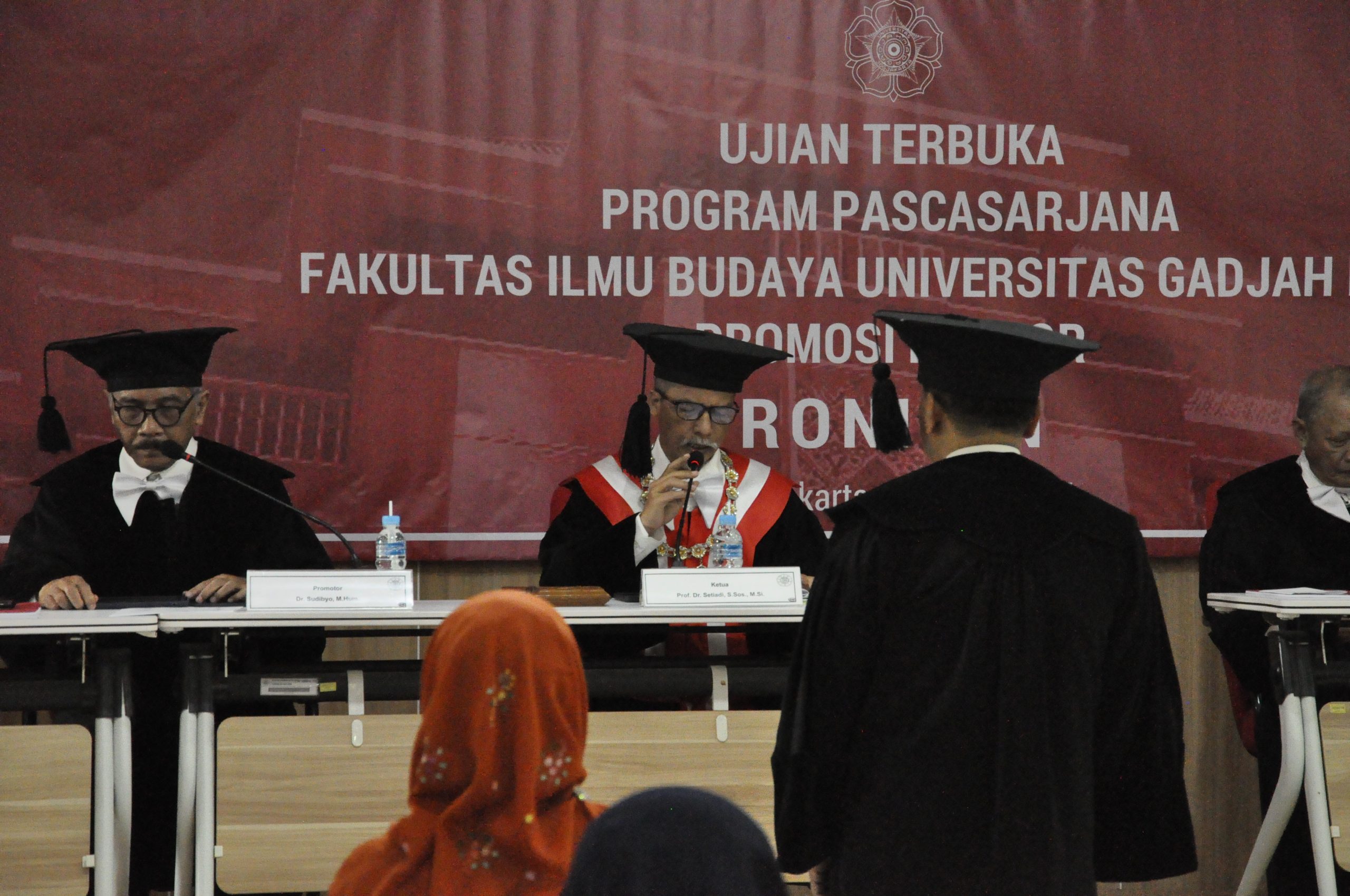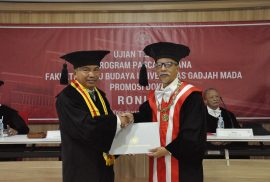Yogyakarta, 16/4/25 — The Doctoral Promotion Open Examination of Dr. Ronidin was held on Tuesday, April 15, 2025, at the Faculty of Cultural Sciences, Universitas Gadjah Mada. The session took place in the Multimedia Room, 2nd Floor of the Margono Building, at 10.00 AM (WIB). This academic agenda marked the culmination of his doctoral journey in the Humanities Study Program at the Faculty of Cultural Sciences, UGM.
In this open examination, Dr. Ronidin defended his dissertation entitled “The Expression of Minangkabau Tabedo in Novels by Minangkabau Authors Post-PRRI to the First Half of the New Order: A Genetic Structuralism Study.” The examination was supervised by Dr. Sudibyo, M.Hum. as Promoter, and Dr. Novi Siti Kussuji Indrastuti, M.Hum. as Co-Promoter, and chaired by the Dean of the Faculty of Cultural Sciences UGM, Prof. Dr. Setiadi, M.Si.

This dissertation delves deeply into how the historical events of the PRRI (Revolutionary Government of the Republic of Indonesia) and the political transition during the early New Order period shaped cultural expressions and worldviews of Minangkabau authors through the medium of novels. Utilizing Lucien Goldmann’s genetic structuralism approach, reinforced by Lotman’s narrative theory, this research demonstrates how the Minangkabau tabedo worldview—characterized by difficult and dilemmatic social conditions—is reflected in literary texts.
The study examines five novels by Minangkabau authors: Dari Puncak Bukit Talang by Soewardi Idris, Panggilan Tanah Kelahiran by Dt. B. Nurdin Jacub, Saraswati Si Gadis dalam Sunyi by A.A. Navis, Warisan by Chairul Harun, and Bako by Darman Moenir. These novels depict the realities of Minangkabau society post-PRRI, amidst state hegemony and the shifting of traditional values, such as the role of the maternal uncle in the matrilineal system, the role of religion, and the relationship between the village and the diaspora.

Dr. Ronidin emphasizes that the Minangkabau tabedo phenomenon emerges as a representation of the tension between traditional values eroded by political realities and modernity introduced from external influences. In these novels, complex social realities are metaphorically portrayed through characters and narrative relationships, structurally reflecting the sociological conditions of Minangkabau society during that era.
This open examination not only affirms Dr. Ronidin’s intellectual capacity as an academic but also contributes significantly to Indonesian literary studies, particularly in understanding literature as a mirror of a society’s socio-political dynamics.
[Public Relation of Faculty of Cultural Sciences, Muhammad Ebid El Hakim]


